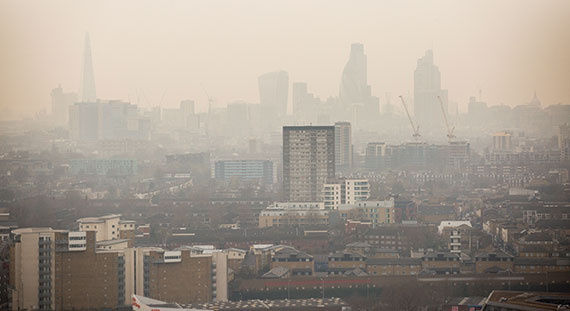
- Property will have a huge role to play in achieving the ambitious climate change targets
- Government’s mixed messages on sustainability leave big questions over how to get there
This week’s Paris climate agreement, which was applauded for the scale of its ambition in cutting greenhouse gas emissions, has far-reaching implications for the property industry.
Buildings account for close to one-third of CO2 emissions, and that figure will continue to rise if developers stick to the status quo, according to the World Green Building Council.
To play its part in limiting global temperature rises to 2°C – the target agreed by all 196 nations at the UN Climate Change Conference in Paris – the industry will need to reduce emissions by 84 gigatonnes of CO2 by 2015 – the equivalent of not building 22,000 coal-fired power stations.
So while the agreement binds the UK to a high-level commitment, much detail is to be worked out on how that carbon reduction will be achieved.
“In terms of the property industry, it may mean that some of the existing legislation coming into our sector might come in faster,” says talks attendee Caroline Hill, head of sustainability at Land Securities.
For example, the government’s E minimum energy efficiency standard, which is due to be enforced from 2018, might be ramped up to a D rating, she predicts.
Such toughening of legislation would fly in the face of a string of recent government announcements which have dismayed sustainability groups.
In the past year the government has scrapped its zero-carbon homes target and curtailed subsidies to support renewable energy.
UK Green Building Council campaigns and policy director John Alker believes the Paris agreement is unlikely to unleash a string of new policies reversing those decisions, but he expects ministers to streamline confusing and overlapping energy taxes on the property sector.
“The government’s approach to regulation is one of regulation as a last resort,” he says.
However, Alker does expect there to be a “big review of policies” as part of the Treasury’s ongoing business energy efficiency tax review, which includes carbon reduction targets. For its part, UKGBC was among a coalition of groups that have committed to register, renovate or certify more than 13.5bn sq ft of buildings over the next five years.
While the specifics of what changes might come are a long way off, the targets signed up for appear to make significant policy change inevitable in the medium term.
Included in the agreement is a review mechanism which requires governments to evaluate emissions reductions every five years, starting in 2020. Successive commitments are required to be more ambitious than preceeding ones.
The idea was crucial in securing the agreement, but it is likely to raise challenges for business.
“What the industry needs is policy certainty,” says Hill.
Despite the apparent cooling of government interest in green policy, LandSec has recently committed to procuring 100% of electricity for its buildings from renewable sources and has pledged to include climate change information in its company reports.
Alker cites LandSec as one of an increasing number of property companies that have realised there is a strong economic case for moving towards sustainable energy, regardless of government policy.
“Government policy is lagging behind where it needs to be to actually make sure that we can meet these targets and historically the property sector has taken its lead from government in responding to policy,” he says.
“That has been one of the main drivers in reducing emissions, but I think we are starting to see a bit of a shift now.”
Demonstrating that shift was the first Buildings Day at this year’s climate talks. It was dedicated to exploring how the built environment can help mitigate climate change. The event was attended by industry leaders from all over the world.
Argent was one of 50 UK property businesses which made a commitment to the UKGBC ahead of the climate talks to reduce carbon emissions.
Environmental project
manager Lydia Dutton believes the UK is likely to see policy changes despite recent mixed messages from government, but agrees that more businesses will start to take the lead regardless.
The developer has pledged to achieve a 60% reduction in emissions from levels identified in the baseline Energy Assessment by 2050 at its King’s Cross development, N1.
“It seems to be a no-brainer that you would want to move in the direction of renewables to support the UK’s energy requirements going forward,” she says.
louisa.clarence-smith@estatesgazette.com











